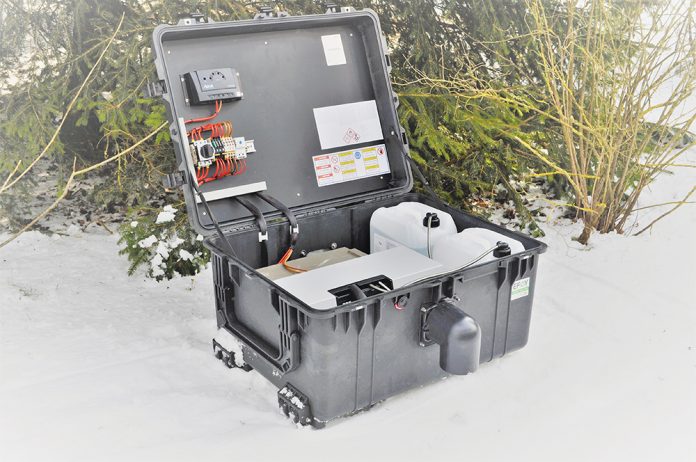The contemporary water industry faces many challenges, not least of which is maintaining the essential infrastructure over a huge geographic area, especially given this infrastructure is sometimes located in hard-to-reach places.
At the same time, the industry is striving to work more efficiently, achieving more with fewer resources, whilst being more environmentally friendly too. The pressure to make service improvements, without passing the cost on to their customers only adds to the challenges ahead. How best can these challenges be met?
Effective water monitoring and analysis is vital so companies can make the best use of precious water resources. Keeping an eye on water flow and quality around the clock is essential, so emerging problems can be identified quickly and more serious problems mitigated. Given the pressure to work more efficiently, data needs to be collected more frequently, so more accurate, evidence-based decisions can be made.
Providing power to remote sites for water monitoring equipment can prove a problem given some are off-grid, so an independent power source needs to be installed. A power source no less that is robust, reliable and low maintenance, thereby reducing the need for site visits, which can be time-consuming and costly.
Power anywhere, anytime
Wessex Water, when seeking an additional power source for a water tank in an off-grid location in Somerset, looked to the EFOY Pro fuel cell supplied by Fuel Cell Systems Ltd. When added to their existing solar panels and wind turbines, the direct methanol fuel cell (DMFC) provided a reliable standby power source to charge the battery bank when the renewable sources were not operational.
Currently, at work around the globe, EFOY fuel cells have been installed at locations as diverse as the Arctic, the Antarctic and on the equator, illustrating the equipment’s capacity to operate in a wide variety of locations and climates. The fuel cell is capable of operating in excessive temperatures when other supplies fail; when temperatures fall below freezing, the fuel cells self-heat.
Their proven track record is underpinned by the fact that over 40,000 fuel cells have been sold worldwide since 2003. Many utilities, agencies and organisations have utilised this reliable remote power source, including the British Antarctic Survey, the BBC, ITV, Trinity House and Bristol Water to name but a few.
The Environment Agency has utilised EFOY Pro fuel cells in several projects, providing power to remote sites for operating automated equipment, including at flow monitoring sites to power Hydrometry equipment.
Easily integrated
Straightforward to install and easy to use, EFOY fuel cells are essentially a battery charger that operates when required. Modular systems, with a small footprint, they can be ‘bolted on’ to existing power sources, providing a dependable standby power supply, without the need to replace the entire power system.
EFOY Pro fuel cells produce no exhaust gases other than water vapour and a small amount of CO2 (no more in operation than a human produces), meaning they are environmentally friendly. Utilising methanol to produce an electrochemical reaction which splits hydrogen gas molecules (H2) to form hydrogen ions and electrons. Their small carbon footprint makes them an ideal back-up power supply for renewable power installations, which may not operate in some weathers and light levels.
The methanol cannot leak or be accessed given the sealed valve incorporated into the design. EFOY fuel cartridges designed specifically for the purpose are used to supply the methanol, and these are available in a variety of sizes. Suffice to say, original EFOY fuel cartridges must be used to guarantee the maximum operating life of the fuel cells.
A versatile system, the fuel cell unit can be connected to up to four fuel cartridges at once using the DuoCartSwitch, meaning a 25 W application can be supported by four M28 fuel cartridges for up to 30 weeks before refuelling is required.
Given these fuel cells can be monitored remotely and incorporate very few moving parts, they are low maintenance, saving expenditure over the operating life of the systems. The lack of moving parts means they are quiet too. This quietness is especially beneficial where the equipment is installed in projects designed to protect wildlife, like in the operation of an eel gate, for example.
All in all, EFOY fuel cells can be installed for a low-emission, long runtime, standalone power supply that is cost-efficient and reliable. The dedicated team at Fuel Cell Systems provide added value by offering invaluable advice on the use and installation of hydrogen fuel cell systems.
www.fuelcellsystems.co.uk



